
Compare the Nikon Z6 to the Nikon Z6 II
Nikon Z6 II
- With the 24.5-megapixel full-frame sensor, you can take detailed photos, even on dark locations.
- You can record in 4K with 60 fps or in Full HD with 120 fps, which ensures sharp and smooth video footage.
- The camera has 273 AF points, so you can focus accurately.
- The screen isn't 180 degrees tiltable to take selfies or record vlogs.
- The battery grip for a longer battery life isn't included by default.
Comparison
| Nikon Z6 | Nikon Z6 II | |
|---|---|---|
| Image sensor | 24.5 megapixels full-frame | 24.5 megapixels full-frame |
| Processor | 1 Expeed 6 processor | 2 Expeed 6 processors |
| Continuous recording | 12 fps | 14 fps |
| Camera buffer | 35 | 124 |
| HDR | No | Yes |
| Eye AF | Photo | Photo + video |
| Storage capacity | 1 XQD | 1 XQD + 1 SD (UHS II) |
Speed
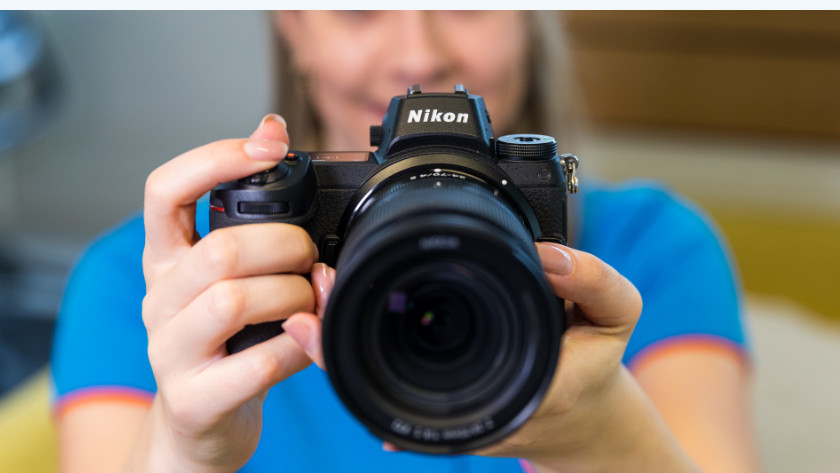
Z6: high speed thanks to the Expeed 6 processor
The Nikon Z6 has a fast Expeed 6 processor. Thanks to this processor, you can photograph with a maximum of 12 frames per second. You can capture activity moments from athletes or wilde animals. The buffer of the Z6 reaches a maximum of 47 JPEG files or 37 RAW files shortly after each other. So you won't miss the right moment. When you photograph athletes, the Z6 detects faces for an accurate focus. This is also a useful function for portrait photography.
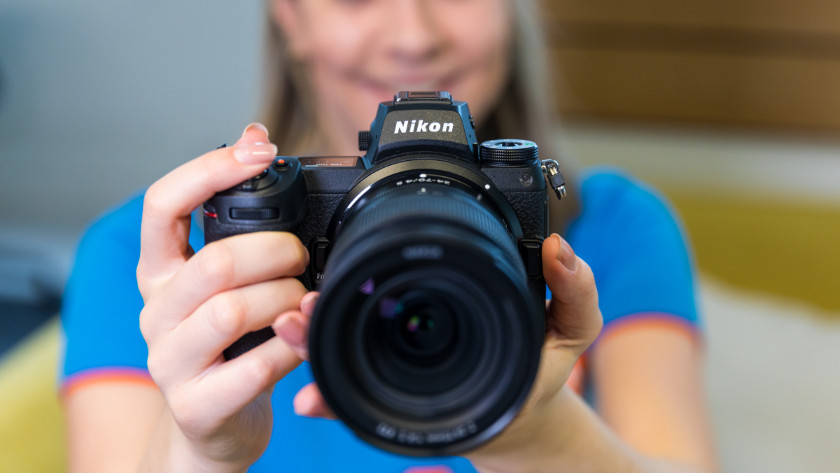
Z6 II: 2 Expeed 6 processors for even more speed
Nikon built a double Expeed 6 processor in the body of the Z6 II. As a result, the 6 II has an improved speed, autofocus, and buffer performance compared to the Z6. You can photograph with 14 fps. In combination with the large buffer of the Z6 II, you can shoot up to 200 JPEG files or 120 uncompressed RAW files shortly after each other. So you're sure you can capture the right action moment. In addition, the camera has a fast tracking function, which allows you to follow moving images.
Image quality
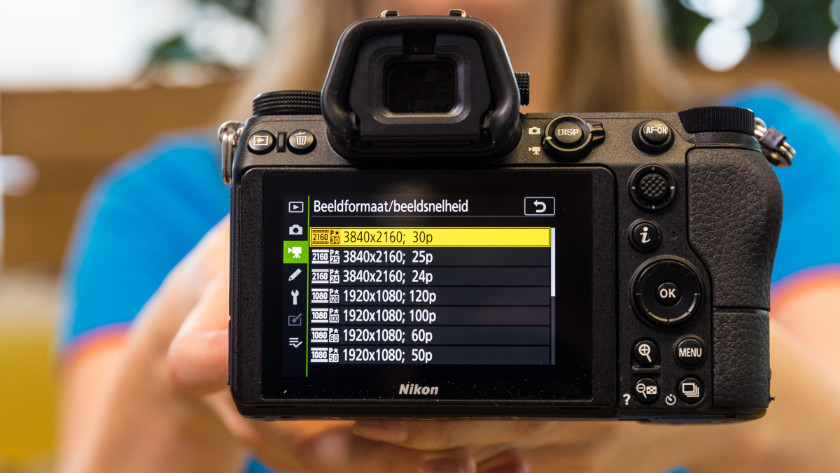
Z6: records in 4K with 30 fps
With the light-sensitive 24.5-megapixel full-frame sensor of the Nikon Z6, you can take sharp photos, even in dark locations. The built-in image stabilization corrects up to 5 stops, so you can use slower shutter speeds while photographing out of hand. This camera is also suitable for videographers, because you can record in 4K with 30 fps. The ISO range of the Z6 is 100 to 51,200, which allows you to use more settings when photographing at night.
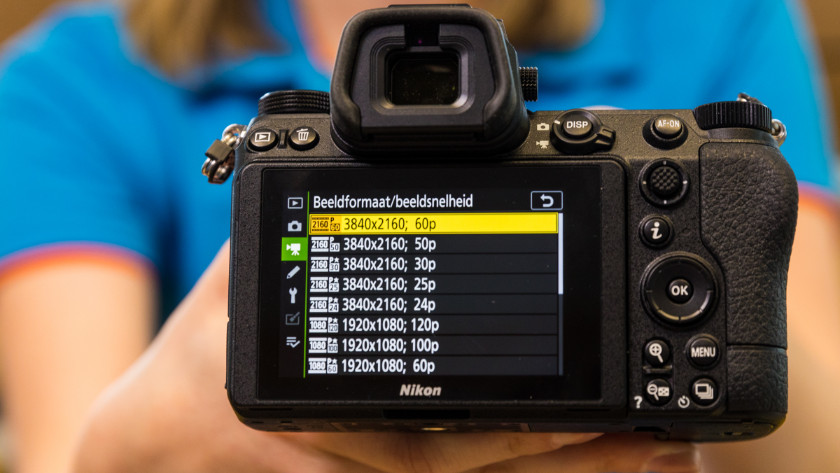
Z6 II: records in 4K with 60 fps
The Z6 II has the same full-frame sensor as the Z6. So you can take both sharp photos and videos. With the Z6 II, you can record images in 4K with 60 fps. This frame rate is higher than with the Z6, so the images are smoother and you can slow them down easier. This camera has built-in image stabilization that corrects up to 5 stops. As a result, you can record smooth video footage out of hand and photograph with slower shutter speeds without a tripod.
Design
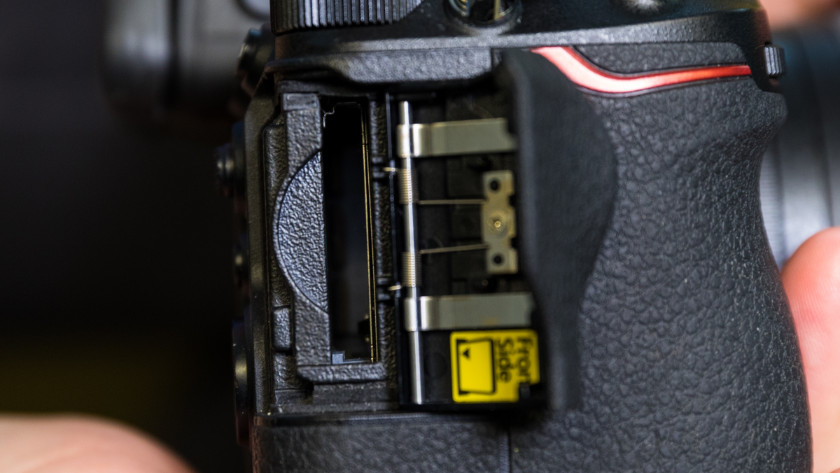
Nikon Z6: single memory card slot
The Nikon Z6 has an ergonomic design that's comfortable to hold. This is especially important during a long photoshoop. The large Nikon Z mount is characteristic for the Z6 body. Thanks to this large mount, much light comes in. The model weighs 585g, so you can easily take it with you. You can insert 1 XQD memory card in the Z6. And thanks to the high write speed of these memory cards, you can photograph with a high number of fps.
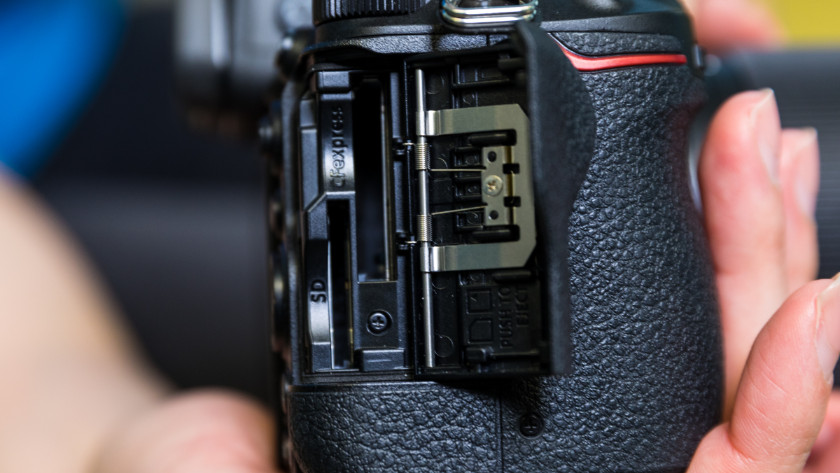
Nikon Z6 II: dual memory card slot
The Z6 II looks a lot like the Z6. The Z6 II has the same large Z mount. But there are a number of differences. The dual memory card slot, for example. This makes the Z6 II slightly heavier, 615g. In this camera, you can insert a XQD and SD UHS II memory card. With these 2 memory cards, you can make a backup or store your photos and videos separately. The Z6 II has contact point for an extra grip with control buttons, which is useful if you want to photograph portrait mode.
Conclusion
The Nikon Z6 and Z6 II don't differ much. Thanks to the large Z mount, you can capture sharp images in dark locations with both cameras. They have the same image sensor and processor. The Z6 II has 2 of these processors, which makes it faster in use. You can photograph and record with more fps, which is useful if you want to photograph athletes or animals. With the dual memory card slot of the Z6, you can store images as a backup or store them separately.



